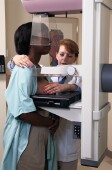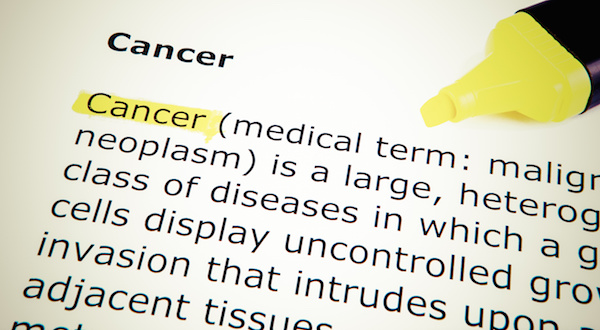
THURSDAY, April 5 (HealthDay News) — Women who have a false-positive result on their mammogram may be at higher long-term risk of developing breast cancer than those whose initial test is negative, according to a new Danish study.
However, the link between false-positive results and an increased risk of breast cancer was weaker among women who had been screened from the early 2000s on, the researchers found.
Experts have long known that screening mammograms, done in healthy women to detect breast cancer early, are bound to lead to some false-positive test results. These are results that seem to detect cancer but turn out to be false upon further testing.
However, few studies have followed these women with false-positive results long-term to evaluate what happens, said My von Euler-Chelpin, an associate professor of epidemiology at the University of Copenhagen, who led the study. The new findings were published online April 5 in the Journal of the National Cancer Institute.
“Some earlier research has found similar results, but to my knowledge there has been no study with such a long follow-up as this one,” Euler-Chelpin said.
For the study, the investigators evaluated 58,000 Danish women, aged 50 to 69. They looked at those with negative mammogram results and those that turned out to be — with further testing such as ultrasound and biopsies — false positives. They looked at both invasive breast cancer and the early cancer known as ductal carcinoma in situ.
The average follow-up time was nearly 11 years. Women who had received false-positive results in the mid-1990s had about a 1.5 to 1.6 times higher risk of eventually developing breast cancer compared to those who had negative initial mammograms. This increased risk persisted even at six or more years, the researchers found.
For the false-positive group that underwent their mammograms in the year 2000 or later, the link with the increased risk was not significant from a statistical point of view, the study authors noted. “The excess risk might still be there,” von Euler-Chelpin said. It could be, she said, that there were not enough cases to detect accurately any increase in risk.
Why would the women with false-positive results be at higher risk? “The reason for this is not known, but misclassification is a possibility,” von Euler-Chelpin said. That is, the women actually had breast cancer but the tests did not detect it.
Whether the findings would apply to U.S. women is not clear, said Dr. Stephanie Bernik, chair of surgical oncology at Lenox Hill Hospital in New York. She reviewed the findings but was not involved in the study.
The research seems to suggest that ”screening has gotten so much better [that] we are more accurate,” Bernik said. “We are better at figuring out who needs a biopsy and who doesn’t,” she added.
“In the past, false positives [in the study] were clearly an indication of an increased risk of getting breast cancer,” Bernik said of the study findings. “Now, it is less clear,” she said of the more recent findings, since 2000.
The Danish researchers encourage women with false-positive tests to continue to get regular follow-up screenings as recommended by their doctors.
In the United States, Bernik said, a woman who has had a false-positive mammogram result is often, but not always, advised to get another mammogram in six months. It depends on what the doctors see on the mammogram and other information. Women should follow their doctors’ advice on the follow-up schedule, she said, as every case is different.
Bernik finds that among her patients, women who have had a previous false-positive result — and had further testing that ruled out cancer — often say they are tempted to ignore recommendations to get further testing when they get a repeat mammogram result that calls for further testing. That is a mistake, she tells them.
“Women can’t rely on the fact they had a false-positive test in the past to forgo additional studies going forward,” Bernik said. “You have to treat each new finding as its own entity.”
More information
To learn more about mammograms and false-positive results, visit the U.S. National Cancer Institute.

